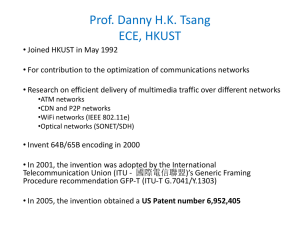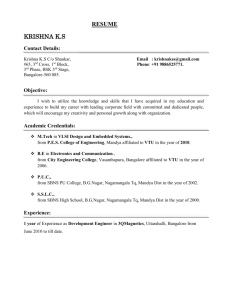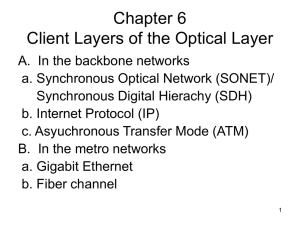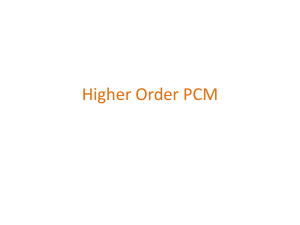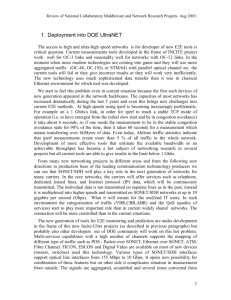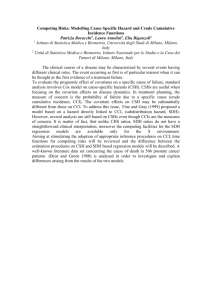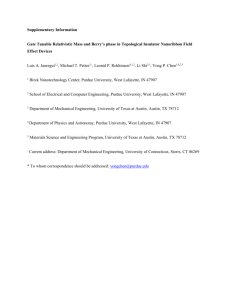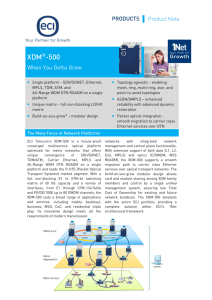LS 121 106
advertisement
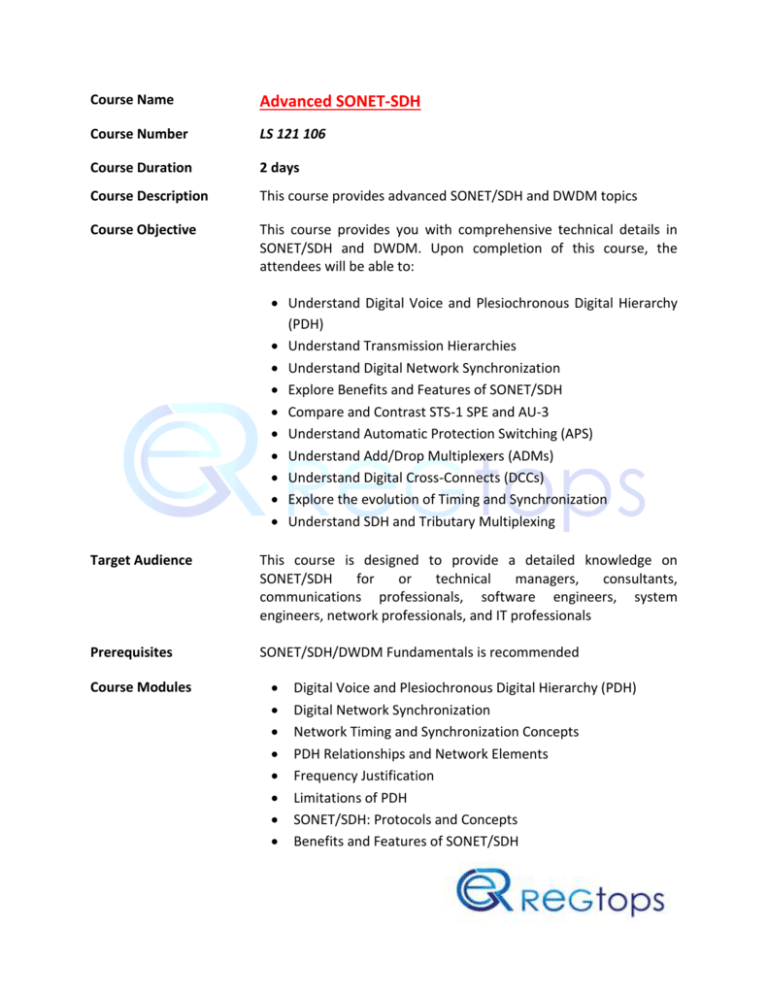
Course Name Advanced SONET-SDH Course Number LS 121 106 Course Duration 2 days Course Description This course provides advanced SONET/SDH and DWDM topics Course Objective This course provides you with comprehensive technical details in SONET/SDH and DWDM. Upon completion of this course, the attendees will be able to: Understand Digital Voice and Plesiochronous Digital Hierarchy (PDH) Understand Transmission Hierarchies Understand Digital Network Synchronization Explore Benefits and Features of SONET/SDH Compare and Contrast STS-1 SPE and AU-3 Understand Automatic Protection Switching (APS) Understand Add/Drop Multiplexers (ADMs) Understand Digital Cross-Connects (DCCs) Explore the evolution of Timing and Synchronization Understand SDH and Tributary Multiplexing Target Audience This course is designed to provide a detailed knowledge on SONET/SDH for or technical managers, consultants, communications professionals, software engineers, system engineers, network professionals, and IT professionals Prerequisites SONET/SDH/DWDM Fundamentals is recommended Course Modules Digital Voice and Plesiochronous Digital Hierarchy (PDH) Digital Network Synchronization Network Timing and Synchronization Concepts PDH Relationships and Network Elements Frequency Justification Limitations of PDH SONET/SDH: Protocols and Concepts Benefits and Features of SONET/SDH Evolution from PDH to SONET/SDH Plesiochronous Networks Building-Block Signals Unifying SONET and SDH Frame Structures Overhead Functions SONET/SDH Rates and Architectures Details of Pointer Processing Pointer Adjustment, Positive and Negative Justification Pointer Errors SONET/SDH Path Overhead and Payload Mappings Compare and Contrast STS-1 SPE and AU-3 Compare and Contrast STS-3c SPE and AU-4 DS-3 Mapping into STS-1 SPE and VC-3 E-4 Mapping into STS-3c SPE and VC-4 TUG-3 and TU-3 Virtual Tributary / Tributary Unit Group Pointers and Payload Mappings Tandem Connections ATM Cell Mapping Packet over SONET Mapping 10G Ethernet over SONET Limitations of Octet HDLC in High Bit Error Ratio (BER) Environments Simplified Data Link (SDL) Protocol SONET/SDH Network Elements and Applications Terminal Multiplexers (TMs) Functional Block Diagram of TMs Automatic Protection Switching (APS) APS Details: Linear APS, 1+1, 1:n, 1:1, Bidirectional, and Unidirectional Revertive and Non-Revertive Meaning and Operation of K1 and K2 Bytes Add/Drop Multiplexers (ADMs) Functional Block Diagram of ADMs Types of Rings, Ring and Span APS UPSR and BLSR, MS-USHR, Virtual Rings, SNCP, MS-SP Ring, and MS-DP Ring Limitations of TDM Rings and Methods to Resolve Them Digital Cross-Connects (DCCs) The Role DCCs in Rings, Meshes, and Virtual Rings Next Generation Digital LoopCarrier (NGDLC) Digital Subscriber Line Access Multiplexers (DSLAMs) SONET/SDH Interfaces on Switches and Routers Synchronizing SDH and SONET Evolution of Timing and Synchronization Virtual Container Regenerator Section Overhead Multiplex Section Overhead Higher-Order Path Overhead (VC-4/VC-3) Lower-Order Path Overhead (VC-2/VC-1) Anomalies, Defects, Failures, and Alarms Error Performance Monitoring Pointers Payload Pointers Positive Pointer Justification Negative Pointer Justification SONET/SDH Multiplexing SDH Tributary Multiplexing Tributary Unit Group TU Multiframe TU Payload Pointer Automatic Protection Switching Multiplex Section Protection, K1/K2 Bytes 1+1 Protection 1:N Protection SONET/SDH Telecommunications Standard Primer SONET/SDH Multiplexing SONET/SDH Signal Hierarchy Network Generic Applications Network Generic Applications: Equipment and Uses Cross-Connect Types Trends in Deployment Network Design SDH Timing Compensation SDH Network Management SDH Performance Monitoring
